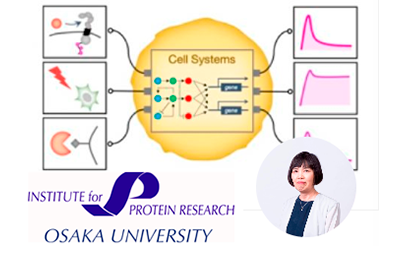SEMINAR:
A COMPUTATIONAL METHOD DEVELOPMENT FOR PATIENT-SPECIFIC MODELING USING NATURAL LANGUAGE PROCESSING AND DEEP LEARNING
Date: Friday, May 24, 2024
Time: 11:00-13:00
Place: CESGA, Santiago de Compostela
Speaker: Prof. MARIKO OKADA, Institute for Protein Research, Osaka University, Japan. http://www.protein.osaka-u.ac.jp/cell_systems/
To access the video-stream of this seminar: https://call.lifesizecloud.com/13796290

Abstract
Patient heterogeneity makes cancer treatment and drug development difficult and costly. Hence, the development of computational methods for finding prognostic markers for individual treatment and drug screening are urgently required. Mechanistic descriptions of gene network using an ordinary differential equations (ODEs) subsequent analysis of in silico dynamics is considered one of the promising approaches to reveal regulatory mechanisms and drug targets in human diseases. Therefore, we developed the Pasmopy (Patient-Specific Modeling in Python), a computational framework for stratification of patients based on in silico signaling dynamics. Using this framework, we constructed a comprehensive model of the ErbB receptor – c-Myc signaling network, trained it with two conditions of phospho-proteomics time-course data from four breast cancer cell lines, estimated parameters of the model. We performed simulation of 377 breast cancer patients using the TCGA (The Cancer Genome Atlas) transcriptome datasets. The temporal dynamics of Akt, Extracellular Signal-Regulated Kinase (ERK), and c-Myc in each patient were able to predict the difference in prognosis and sensitivity to kinase inhibitors in triple-negative breast cancer (TNBC). Furthermore, using Text2model installed in PasmoPy, mathematical analysis can be easily performed by non-mathematicians by constructing a mathematical model from the text of biochemical reactions and performing parameter estimation and sensitivity analysis. Currently, we are also developing the method of using Text2Model as an intermediate language to build mathematical models from literature and public databases in a fully data-driven manner, and the method of stratifying the patients using computed in silico dynamics using deep learning. I will explain our current ongoing study in this seminar.
References
[1] Imoto H, Yamashiro S, Okada M. A text-based computational framework for patient -specific modeling for classification of cancers. iScience, 25(3):103944, 2022. doi: 10.1016/j.isci.2022.103944.
[2] Arakane K, Imoto H, Ormersbach F, Okada M. Extending BioMASS to construct mathematical models from external knowledge. Bioinformatics Advances in press.

